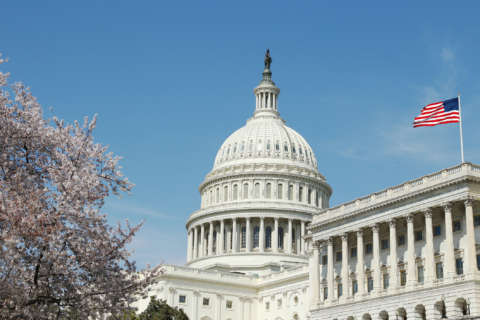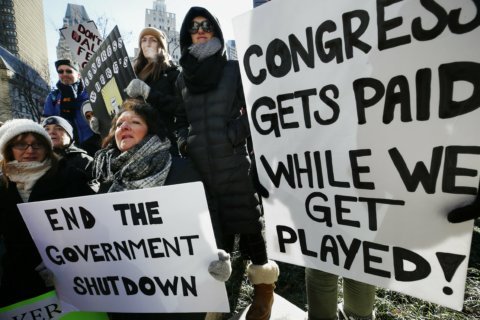LEESBURG, Va. — Life goes on for federal workers affected by the partial government shutdown, and the Loudoun County government is trying to lighten the load.
Local leaders announced steps the county has taken Friday to assist the estimated 15,000 to 20,000 federal workers who live in Loudoun County, Virginia.
“We have federal worker who are essential workers, so they still have to go to work, while they’re not being paid,” said Board of Supervisors Chair Phyllis Randall.
Starting Monday, the county will waive bus fares for those who ride Loudoun County Transit buses to downtown, and Virginia locations just outside of the nation’s capital.
“They need to get on the bus and show their federal ID, and they can ride without cost,” said Randall.
The county approved the allocation of up to $25,000 to two area food banks — Loudoun Hunger Relief and the Dulles South Food Pantry.
“Our goal is to free up money so people can pay their mortgage,” said Randall. “So, if we can free up a grocery bill, that would do that.”
Loudoun County Public Schools will continue to serve lunches to students who have debt on their lunch cards.
“They’ll be able to eat without paying for their food, if they can’t afford to do that,” said Randall.
Randall said her office contacted local utilities, including Dominion Energy, NOVEC and Loudoun Water, which have agreed to work with customers “to make payment plans, or allow bills to be stayed at this time, without charging late fees.”
Customers who live in the county should call the utilities, explain their situations, “and they will work with you.”
In addition to the government assistance, Eastern Automotive has committed to donate $5,000 a month to Loudoun food pantries until the shutdown is over.
“Putting food on the table is tough without a paycheck,” added board vice chairman and Ashburn District Supervisor Ralph Buona.
“It takes a village to fix the problem. It takes government, for-profit industry, utility companies, and the nonprofit community. Also, our citizens need to step up and donate to the nonprofit communities, especially food pantries,” Buona said.








